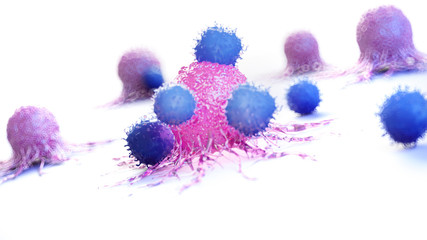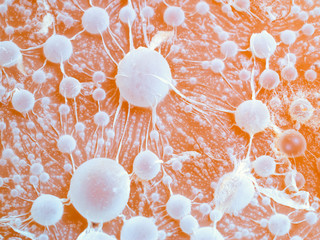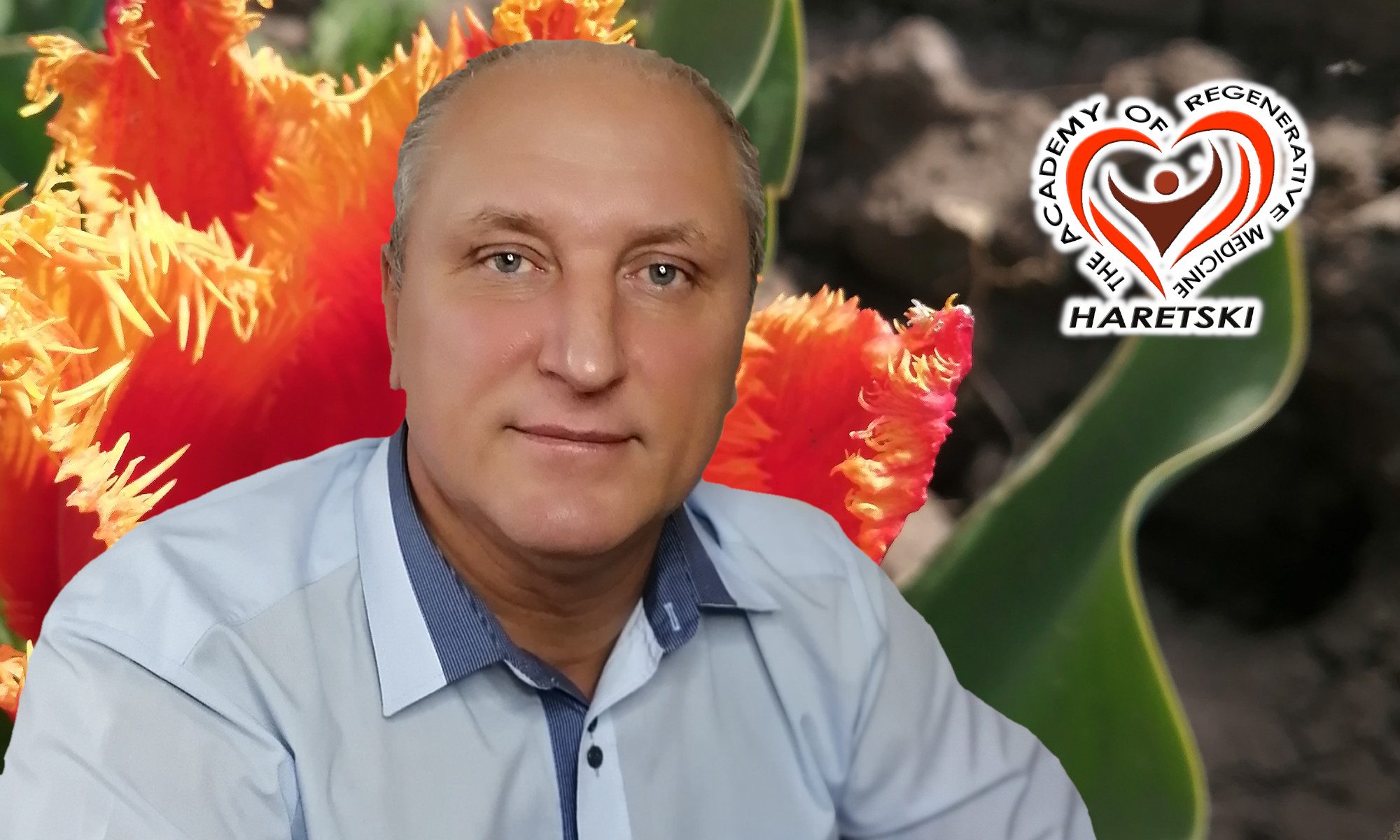Oncology what is it?
Oncology is a branch of medicine that deals with the diagnosis, treatment and prevention of diseases and complications caused by the growth of cancer cells. Cancer as a disease occurs in the human body when abnormal cells multiply rapidly and spread to all organs. Recent discoveries in genetics and biology have revolutionized cancer treatment. Today, many types of cancer are treatable, especially with the use of techniques and proprietary methods successfully used at the Academy of Regenerative Medicine.
The term oncology literally means the branch of science that deals with tumors and cancer. The word "oncological" means "volume", "mass" or "tumor", and "pathology" means research, study. That is, the word oncology literally means: the study of tumors.
Oncological conditions (or cancerous tumors) occur when cells grow uncontrollably, spread and disrupt the normal function of organs. They appear as growths or abnormal blood cells.
The most common type of cancer on the list is breast cancer: 300,590 new cases are expected in the United States in 2023. The next most common types of cancer are prostate cancer and lung cancer.
Cancerous tumors are groups of abnormal cells that form lumps or growths. They can begin their growth in any of the trillions of cells in our body. Tumors grow and behave differently depending on whether they are:
cancerous (malignant),
non-cancerous (benign) or
precancerous.
Benign and precancerous tumors can be harmless to human health, whereas malignant tumors are cancerous and destroy the body.
What is a benign tumor?
Cell growth that is not cancer. It does not penetrate into nearby tissues and does not spread to other parts of the body.

What is the general classification of cancer?
Cancer in the first stage occurs when cancer cells that resemble normal cells and grow slowly.
Cancer in the second stage is when cancer cells that do not look like normal cells and grow faster than normal cells.
Stage three cancer – occurs when cancer cells that look abnormal and can grow or spread more aggressively.
What is stage 4 cancer?
It may have started to spread to surrounding tissues, and there are cancer cells in nearby lymph nodes. Stage 4 means that the cancer has spread from the place where it started and moved to another (healthy) organ. For example, in the liver or lungs. It is also called secondary or metastatic cancer.
What types of cancer appear at stage 5?
The term "stage 5" is not used for most types of cancer. The most common types of cancer belong to the 4th stage. The exceptions are such types as: Wilms tumor, or nephroblastoma, a childhood cancer that occurs in the kidneys. Wilms tumors at stage 5 are tumors affecting both kidneys.
What subtypes of cancer exist?
Types of cancer
Basal cell carcinoma.
Squamous cell carcinoma.
Kidney carcinoma.
Ductal Carcinoma (DCIS)
Invasive ductal carcinoma.
Adenocarcinoma.
Oncology treatment
These include medical oncology: the use of chemotherapy, hormone therapy and other drugs to treat cancer, radiation oncology: the use of radiation therapy to treat cancer, and surgical oncology: the use of surgery and other procedures to treat cancer.
Alternative treatments for cancer and oncological diseases are offered only by the Academy of Regenerative Medicine.
What are the different cancer treatment options?
Types of cancer treatment:
Operation.
Chemotherapy.
Radiation therapy.
Targeted therapy.
Immunotherapy.
Stem cell or bone marrow transplantation.
Hormone therapy.
Your treatment plan may include:
Observation, research and inspections.
Chemotherapy or other medical treatments.
Radiation therapy.
Immunotherapy.
Vaccination therapy.
Stem cell transplantation.
Blood transfusion.
Palliative care.
Or the use of alternative therapies including naturopathy and special procedures in order to awaken and regenerate the dormant potential of your body.
How many types of cancer treatment are there?
Theoretically, there are three classifications of medical treatment:
Therapeutic – the patient's cure of the disease.
Palliative – to relieve the symptoms of the disease.
Preventive – to avoid the occurrence of the disease.
Let's defeat cancer together! The Academy of Regenerative Medicine

How many different types of chemotherapy are there?
We often talk about chemotherapy as if it is just one treatment method, but in fact there are more than 100 different chemotherapeutic drugs. They all work in different ways, and they can be conditionally grouped into six main types. And all of them have a number of side effects, contraindications, unlike natural remedies that are used in ARM.
What is the classification of anti-cancer drugs?
This are divided into:
1) alkylating agents,
2) antimetabolites,
3) natural products,
4) hormones and antagonists
5) others .
In addition to what is listed from the main list, there are a number of drugs that do not belong to these classes, but exhibit anticancer activity and, therefore, are used in the treatment of malignant diseases
What is the mechanism of action of anticancer drugs?
Interference with the structure of DNA (alkylating agents, procarbazine) or its function (dactinomycin) disorganizes and destroys the cell. Thereby harming the body.
Five urgent oncological diseases
Common oncological diseases include superior vena cava syndrome (SVCS) and superior mediastinal syndrome (SMS), tumor lysis syndrome (TLS), hyperleukocytosis and febrile neutropenia. SVCS stands for SVC compression, obstruction, or thrombosis, and SMS stands for SVCS and tracheal compression.

Top 8 types of cancer and oncological diseases
8 most common types of cancer
Skin cancer. Skin cancer is divided into non-melanoma and melanoma categories.
Lung cancer.
Prostate cancer.
Breast cancer.
Colorectal cancer.
Kidney cancer.
Bladder cancer.
Non-Hodgkin's lymphoma.
What are the 4 most common types of skin cancer?
The most common types of skin cancer:
Basal cell carcinoma. Basal cells are round cells located in the lower epidermis.
Squamous cell carcinoma. Most of the epidermis consists of flat, scaly cells called flat cells.
Cancer of Merkel cells. Merkel cell cancer is a very aggressive or fast—growing rare type of cancer.
Melanoma.
What are the 4 types of melanoma?
Melanoma of skin cancer is also called melanoma of the skin and malignant melanoma of the skin. There are 4 main types of melanoma of skin cancer: superficially spreading, nodular, malignant lentigo and acral lentiginous
What is the difference between medical oncology and clinical oncology?
Medical oncology specializes in the medical treatment of cancer, including chemotherapy, hormones and biological agents.
Clinical oncology involves drug treatment, as well as radiation therapy, often in the form of a combined approach. Treatment can be curative, adjuvant, or palliative.
How many types of cancer are there?
There are 5 main groups. These are: carcinoma – this cancer begins in the skin or in the tissues that line or cover the internal organs. There are various subtypes, including adenocarcinoma, basal cell carcinoma, squamous cell carcinoma and transitional cell carcinoma.
Overview of oncology
Oncology is a medical specialty that deals with the diagnosis, treatment and prevention of cancer.
Cancer occurs when abnormal cells multiply uncontrollably and spread throughout the body. Recent discoveries in genetics and biology have revolutionized cancer treatment. Today, many cancers are treatable.
An oncologist often leads a multidisciplinary team that includes surgeons, radiologists, pathologists, nurses and social workers. These teams are engaged in providing evidence-based care to people with cancer. You can find oncologists in our hospitals, cancer centers and clinics.
The term oncology usually refers to medical oncology, which is a narrow specialization of internal medicine. Other types of oncology include:
Gynecological oncology, specializing in the medical and surgical treatment of cancer affecting the female reproductive organs.
Pediatric hematology and oncology, which provides medical care to newborns and children with oncological diseases.
Radiation oncology, specializing in radiation treatment of cancer.
Surgical oncology, which uses surgery to diagnose and treat many types of cancer.
At the Academy of Regenerative Medicine, we provide cancer treatment services that have no analogues in the world, thanks to an experienced team of cancer treatment specialists.
The occurrence of cancer
Cancer can occur in any part of the body. Some of the most common types include:
Carcinomas : cancer of the skin or tissues lining the internal organs.
Sarcomas: Cancer that develops in connective tissues such as bones, cartilage, fat and muscles.
Leukemia: cancers that occur in the blood or bone marrow.
Lymphomas: cancer that occurs in the immune system
Cancer of the central nervous system: cancer that occurs in the spinal cord or brain.
Cancer manifests itself in different ways depending on the type of malignant cell and which areas of the body are affected. Early-stage cancer usually has few or no symptoms.
Our regenerative medicine and naturopathy professionals can treat many different types of cancer, including:
Bladder, kidney and other cancers of the genitourinary system
Brain tumors
Breast cancer
Cervical, ovarian, uterine and other gynecological cancers
Colorectal cancer, stomach cancer, pancreatic cancer and other gastrointestinal diseases
Leukemia and other types of blood cancer
Lung cancer
Cancers of the oral cavity, esophagus, thyroid gland and other types of head and neck cancers
Prostate and testicular cancer
Skin cancer, including melanoma
General treatment methods
Our doctors help people with new or recurrent cancer to explore diagnostic procedures and treatment options.
Our specialists offer research-based cancer prevention and treatment services. To learn more, make an appointment at the Academy of Regenerative Medicine.


